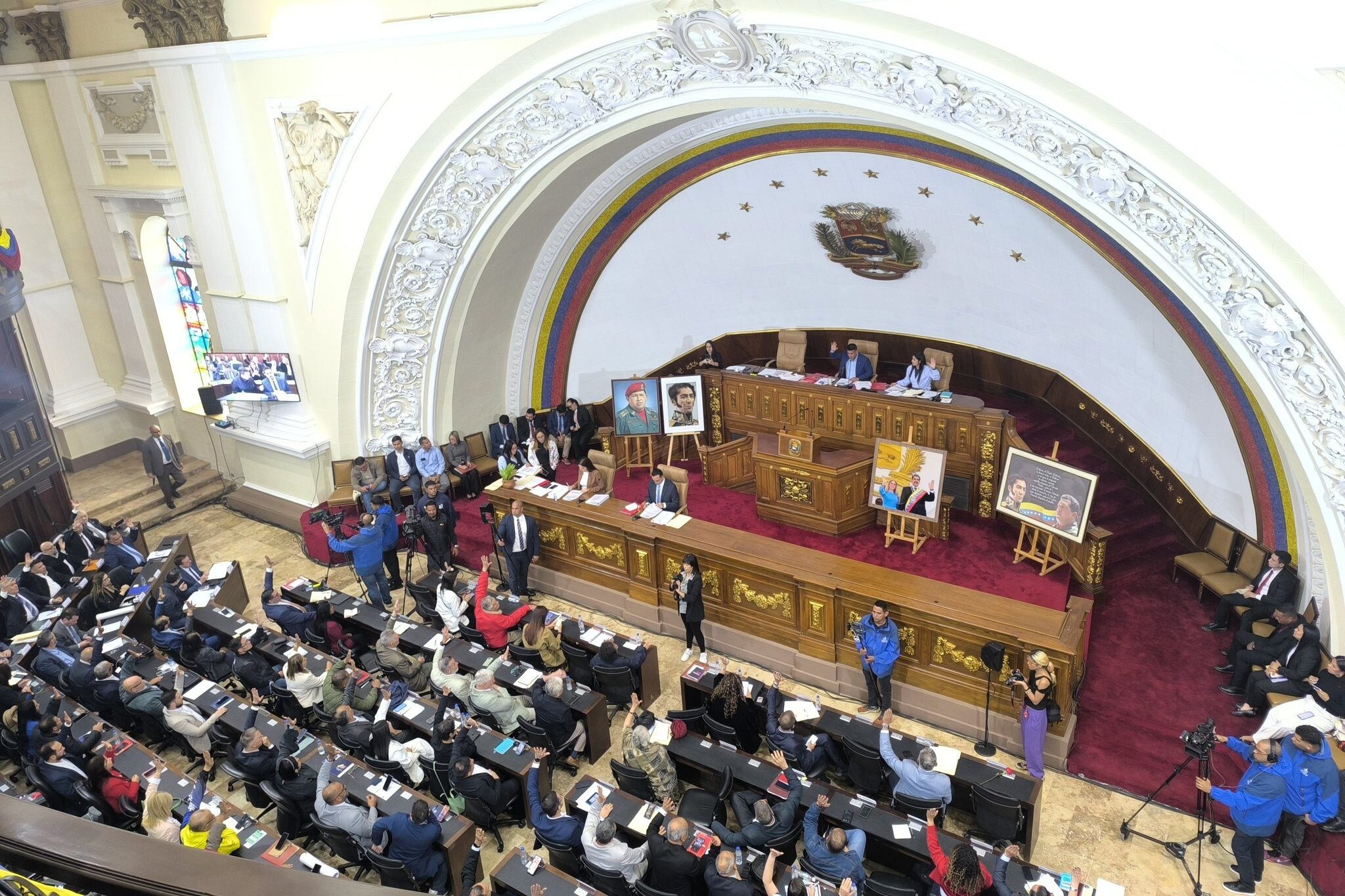José Antonio Gil Yepes, director of Datanálisis and an expert in Strategic Planning, Market Research, and Public Opinion, asserts that ending rentierism in Venezuela requires changes across the nation’s entire economic, political, social, and cultural system. Photo: Fedecámaras website.
Guacamaya, September 11, 2025. Sociopolitical theory holds that interest groups must model their organizational structure on that of the public sector they aim to influence. Otherwise, their lobbying efforts to shape public policy decisions affecting their interests are unlikely to succeed.
When Venezuela’s economy was agrarian, rural, and privately held, the main business chambers were those of Maracaibo, Puerto Cabello, La Guaira, Carúpano, and other port cities exporting agricultural goods. Coordination among them was minimal. With the rise of oil revenues captured by the State, the government of Juan Vicente Gómez increased political power concentration through military modernization, expanded tax collection, and economic policies.
Among those policies were the rapid development of the oil industry under foreign control, currency overvaluation, concentration of public spending in urban areas, and an economy driven by public expenditure rather than private investment. These measures suppressed non-oil exports and centralized political power within the ruling group.
Thus emerged a highly centralized, statist, presidentialist, partisan, populist, and rentier State. This rentier trait shaped the State’s organization around distributing oil revenues—both to the poor and the wealthy—minimizing political pluralism and turning Venezuela into a mono-exporting nation.
This shift required a reorganization of the business movement. In 1944, Fedecámaras was founded as a centralized interest group whose activities included lobbying over the criteria and beneficiaries of rent distribution. The business sector also advocated for the “sowing of oil,” a concept proposed by Arturo Úslar Pietri in 1936, which aimed to diversify exports and, consequently, sources of political power. Yet no government in the past 100 years—except those of Isaías Medina Angarita, Carlos Andrés Pérez (second term), and Ramón Velázquez—has shown interest in this idea.
This economically irrational but politically intentional model was reinforced by the 1973 oil policy revolution, which posited that oil revenues would grow not through increased volume but through price hikes and manipulation. This flawed logic, which led to oil being replaced by alternative energy sources, added new constraints to existing ones: macroeconomic volatility, inflation, rising interest rates, ineffective and insincere economic adjustments, and declining private investment and real wages. As a result, Venezuela never reduced poverty below 60% during the 20th century—a key factor in the collapse of the Punto Fijo Pact in 1998, compounded by declining oil production since 2014.
As rentier income shrinks, both the State and society must reorganize. In fact, the government is already doing so, having ceased to rely on oil revenues and the practice of justifying poor governance through rent distribution and the creation of obligations that silence recipients under the guise of “prudence.” These dynamics have reversed: the government now survives on increasingly high taxes and saves vast sums by paying unimaginably low wages and investing minimally in infrastructure and public services.
Unintentionally, this transformation is triggering a democratizing revolution. Higher taxes paired with poor public services compel social sectors to reorganize and demand accountability. This is what’s coming. Studies on the origins of the world’s most developed pluralist democracies—such as those in Northern Europe—highlight the link between “higher taxes and greater accountability or revolution.”
The transformation yet to occur is the government’s call for businesses and workers to increase their economic contributions. If it did, it could boost tax revenues not by raising rates but by expanding the taxpayer base. This would require dismantling the webs woven over the past 90 years. Doing so would prevent the rise of democratizing pluralism if companies, workers, professionals, and skilled labor were freed and invited to invest, produce, employ, pay better wages, and diversify exports.
What remains of rentierism will not be explained by a substantial rebound in rent, but by the failure to implement economic policies that facilitate export diversification. Growing outward will be difficult as long as inflation is fought through impoverishing policies based on liquidity restrictions and high taxes.
In the meantime, we must try to “grow inward.” A wise man told me this about 50 years ago when I asked, “How does your company survive if the government has kept prices fixed at Bs.1 per kilo for over a decade?” His answer implied that internal growth—managing variables within the company such as productivity and competitiveness—was key. Growth in volume could make minimal profits viable, but only if sales and market share increased.
The organized business movement can adopt this principle and multiply its application without needing the government to change its current policies.
The key lies in lowering transaction costs through alliances among links in the production chains and among competitors. Transaction costs arise whenever we must: 1) inspect the good or service to be acquired, 2) assess the counterpart’s compliance history, 3) negotiate exchange terms—price, frequency, delivery method, volume discounts, early payment terms, etc., 4) monitor each transaction, and 5) establish an arbitrator for disputes. The goal is to negotiate permanent agreements that eliminate the need to repeat these five steps for every transaction.
Business chambers are best positioned to disseminate, teach, and promote these types of agreements to reduce transaction costs and foster “inward growth.”
Sectoral chambers can boost member productivity through cooperative agreements among competitors, known as “coopetition.” While some may find this idea fanciful, global giants like Samsung and Apple—fierce rivals in the smartphone market—have embraced it. Samsung has supplied Apple with components like screens and memory chips for iPhones. In Venezuela, Asoproco (the Shrimp Producers and Exporters Association) is the most successful example of coopetition, pooling production, building joint processing facilities, and exporting volumes no single member could achieve alone.
Regional chambers are ideal platforms for promoting alliances across production and service chain links, as their membership spans multiple sectors located in close proximity. The proven methodology for developing this movement is called “Locality Marketing.” It involves forming a local public-private Promoter Group, selecting the locality’s most competitive economic activities, identifying strengths and weaknesses in each chain link, promoting investments to enhance competitiveness, and projecting local programs and branding to attract investors and skilled labor.
These two movements require a “psychological reframing” of government-business and business-business relations, as well as our approach to strategic planning. In a rentier country, these relationships were mostly vertical—between each company or chamber and the government. But this model has run its course, as the actor at the top now takes rather than gives. Today, we must mentally and socially reframe our planning and growth strategies around horizontal relationships—business-to-business—promoted by the chambers.
Fedecámaras and the sectoral federations are well-positioned to lead these two cooperative approaches. They have the representation and credibility to promote them. Financing can also be self-sourced through the mechanisms offered by the growing Caracas Stock Exchange, complemented by the recovery of bank credit once reserve requirements are lowered. Government initiatives aimed at “rowing together” toward a less vertical, more horizontal model are also welcome.







